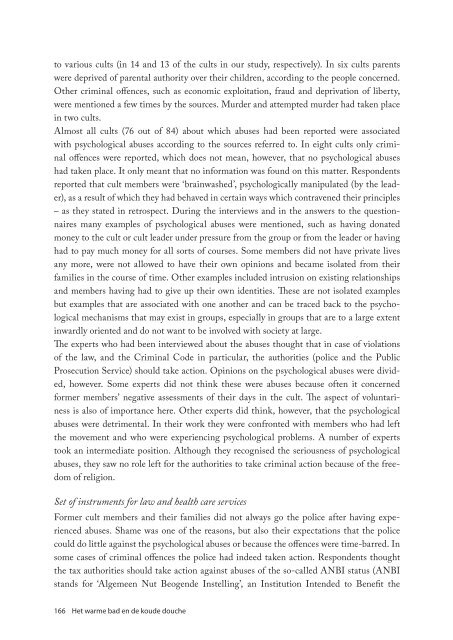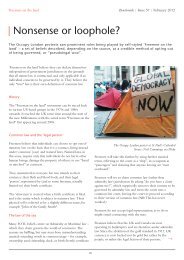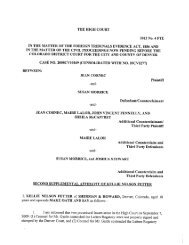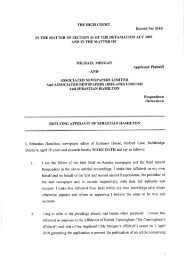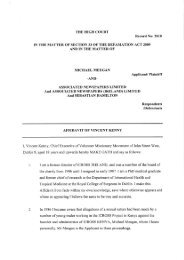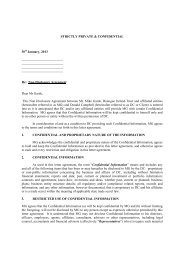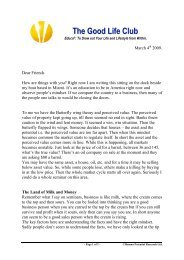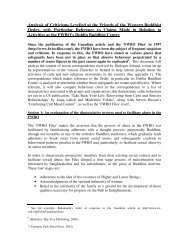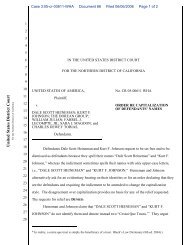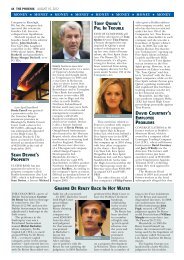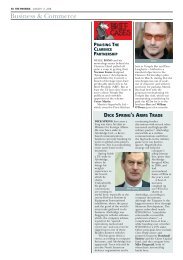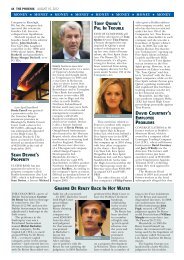Het warme bad en de koude douche - Rijksoverheid.nl
Het warme bad en de koude douche - Rijksoverheid.nl
Het warme bad en de koude douche - Rijksoverheid.nl
Create successful ePaper yourself
Turn your PDF publications into a flip-book with our unique Google optimized e-Paper software.
to various cults (in 14 and 13 of the cults in our study, respectively). In six cults par<strong>en</strong>tswere <strong>de</strong>prived of par<strong>en</strong>tal authority over their childr<strong>en</strong>, according to the people concerned.Other criminal off<strong>en</strong>ces, such as economic exploitation, fraud and <strong>de</strong>privation of liberty,were m<strong>en</strong>tioned a few times by the sources. Mur<strong>de</strong>r and attempted mur<strong>de</strong>r had tak<strong>en</strong> placein two cults.Almost all cults (76 out of 84) about which abuses had be<strong>en</strong> reported were associatedwith psychological abuses according to the sources referred to. In eight cults o<strong>nl</strong>y criminaloff<strong>en</strong>ces were reported, which does not mean, however, that no psychological abuseshad tak<strong>en</strong> place. It o<strong>nl</strong>y meant that no information was found on this matter. Respond<strong>en</strong>tsreported that cult members were ‘brainwashed’, psychologically manipulated (by the lea<strong>de</strong>r),as a result of which they had behaved in certain ways which contrav<strong>en</strong>ed their principles– as they stated in retrospect. During the interviews and in the answers to the questionnairesmany examples of psychological abuses were m<strong>en</strong>tioned, such as having donatedmoney to the cult or cult lea<strong>de</strong>r un<strong>de</strong>r pressure from the group or from the lea<strong>de</strong>r or havinghad to pay much money for all sorts of courses. Some members did not have private livesany more, were not allowed to have their own opinions and became isolated from theirfamilies in the course of time. Other examples inclu<strong>de</strong>d intrusion on existing relationshipsand members having had to give up their own id<strong>en</strong>tities. These are not isolated examplesbut examples that are associated with one another and can be traced back to the psychologicalmechanisms that may exist in groups, especially in groups that are to a large ext<strong>en</strong>tinwardly ori<strong>en</strong>ted and do not want to be involved with society at large.The experts who had be<strong>en</strong> interviewed about the abuses thought that in case of violationsof the law, and the Criminal Co<strong>de</strong> in particular, the authorities (police and the PublicProsecution Service) should take action. Opinions on the psychological abuses were divi<strong>de</strong>d,however. Some experts did not think these were abuses because oft<strong>en</strong> it concernedformer members’ negative assessm<strong>en</strong>ts of their days in the cult. The aspect of voluntarinessis also of importance here. Other experts did think, however, that the psychologicalabuses were <strong>de</strong>trim<strong>en</strong>tal. In their work they were confronted with members who had leftthe movem<strong>en</strong>t and who were experi<strong>en</strong>cing psychological problems. A number of expertstook an intermediate position. Although they recognised the seriousness of psychologicalabuses, they saw no role left for the authorities to take criminal action because of the freedomof religion.Set of instrum<strong>en</strong>ts for law and health care servicesFormer cult members and their families did not always go the police after having experi<strong>en</strong>cedabuses. Shame was one of the reasons, but also their expectations that the policecould do little against the psychological abuses or because the off<strong>en</strong>ces were time-barred. Insome cases of criminal off<strong>en</strong>ces the police had in<strong>de</strong>ed tak<strong>en</strong> action. Respond<strong>en</strong>ts thoughtthe tax authorities should take action against abuses of the so-called ANBI status (ANBIstands for ‘Algeme<strong>en</strong> Nut Beog<strong>en</strong><strong>de</strong> Instelling’, an Institution Int<strong>en</strong><strong>de</strong>d to B<strong>en</strong>efit the166 <strong>Het</strong> <strong>warme</strong> <strong>bad</strong> <strong>en</strong> <strong>de</strong> kou<strong>de</strong> <strong>douche</strong>


